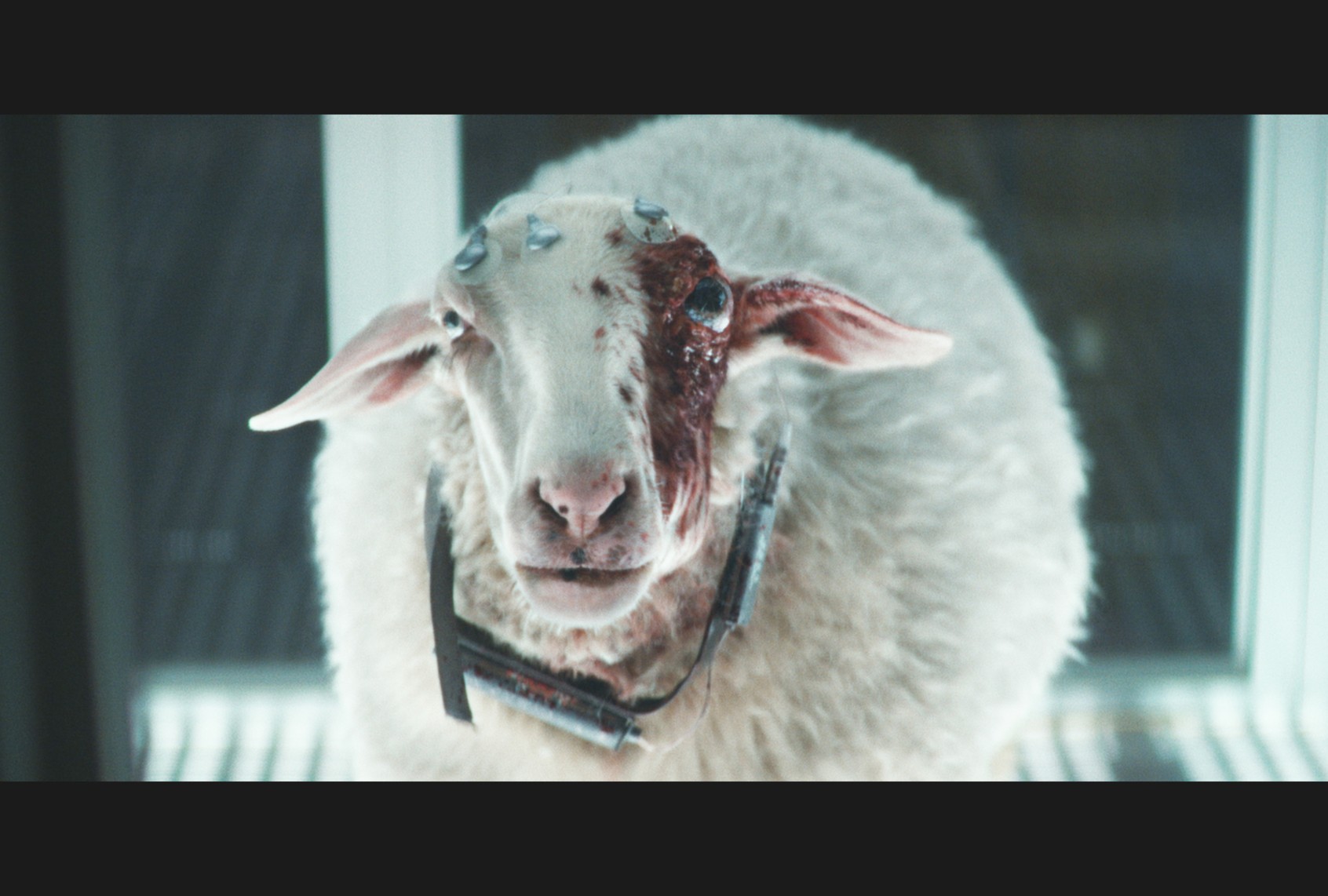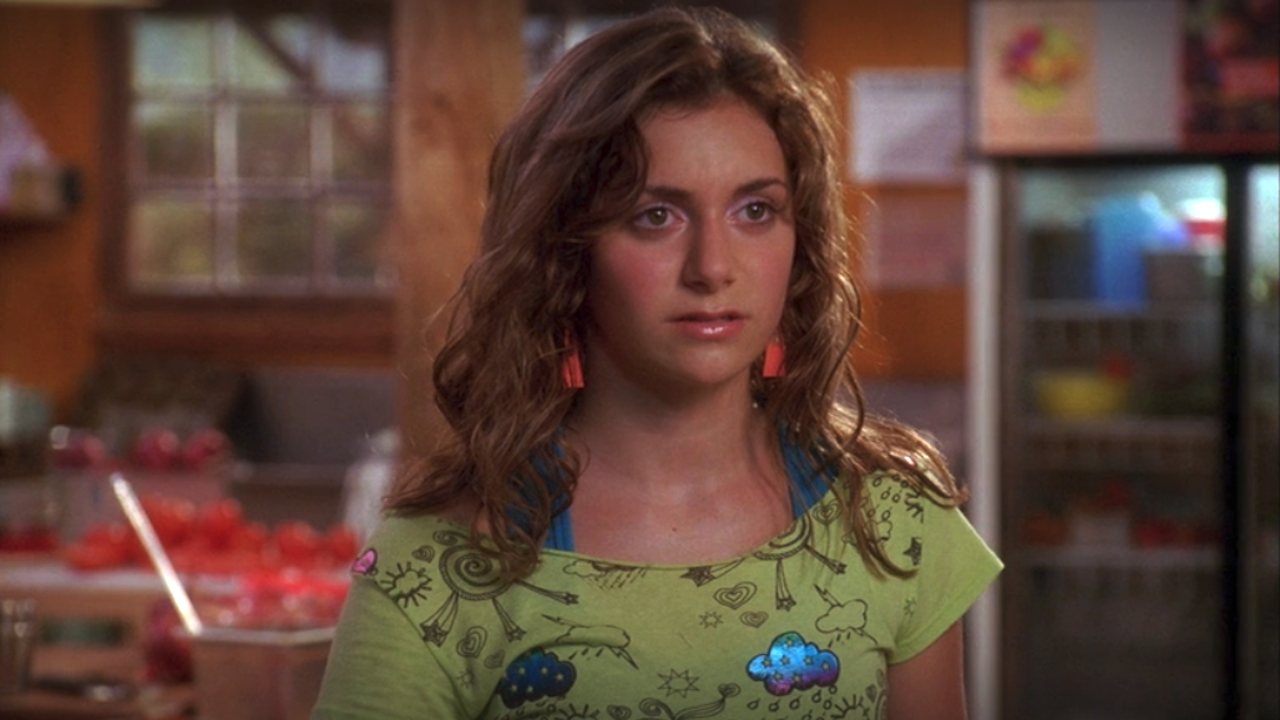
Among the many strange biological wonders Charles Darwin observed in his time, one haunted him above all. “‘The eye, to this day, gives me a cold shudder,” he admitted in a letter to an American colleague, “but when I think of the fine known gradations, my reason tells me I ought to conquer the cold shudder.”
Whether the father of evolution overcame his fear is a mystery, but if he felt that way about the eyeball, his first sight of Trypanohyncha Ocellus, the “Alien: Earth” creature known as the eye midge, might have given him a heart attack. Our first look at it made my skin crawl, too, after I reflexively shielded my face.
As any seasoned horror movie fan can attest, few frights are as reliably nauseating as eyeball trauma. Darwin’s confessed heebie-jeebies about the unmolested eye hints that this response is related to something primal.
Noah Hawley’s speculative future is set more than two and a half centuries after “On the Origin of Species” was first published, a not-too-distant future in which humankind has taken to space and expanded its colonialist hunger to conquer other planets and species. The eyeball monster was among the captive cargo on a research vessel, the Maginot, commissioned by the Weyland-Yutani Corporation, the “Alien” franchise’s main corporate villain.
Its scientists also captured a xenomorph, whose moves we know all too well. The titular alien is fast, has razor-sharp teeth and a whip-like tail capable of impaling its victims. On the off chance that an adversary pierces its tough exoskeleton, they risk being injured if not outright dissolved by the creature’s highly concentrated acidic blood.
Terrifying as that is, the eye midge manages to be scarier. Start with its resemblance to an eye that’s been knocked out of a skull — identical to a human eyeball, until it displays a carousel of irises. It’s also highly intelligent and fast, propelling itself via slick tentacles like a bloody octopus.
What makes it slither through our nightmares is its means of conquering lesser life forms, described in a research log left behind on the Maginot, the doomed vessel carrying the creature until Weyland-Yutani’s business rival, Prodigy, absconded with it:
The tentacles carry extraordinary strength and are built to climb into and dislodge the eyes of other living organisms. Once replaced in the eye socket, T. Ocellus takes over the ocular pathways to the brain, overriding the neurotransmissions throughout the body.
In other words, it rips out its victims’ eyes and hotwires their brains, all while they’re alive to scream through the agony.
As any seasoned horror movie fan can attest, few frights are as reliably nauseating as eyeball trauma. Darwin’s confessed heebie-jeebies about the unmolested eye hints that this response is related to something primal. Long before humans studied anatomy, all it took was a stiff wind and some dust to figure out that our eyes are sensitive and susceptible to damage. They’re also full of jelly, wet, and can be rheumy, making them a go-to target in lurid nasties directed by the likes of Lucio Fulci, 1970s horror’s Leonardo da Vinci of ocular abuse.
A saner, scientific view hails the eye as the second most complex organ in our bodies. Primacy belongs to the brain, which dedicates around half of its resources to processing visual information; hence, vision’s intimate relationship to emotion and intuition. Few body parts are romanticized in song and literature or studied to ascertain someone’s true intentions.
Sheep, though, are hard to read. In the fourth episode, “Observation,” Boy Kavalier (Samuel Blenkin) and Kirsh (Timothy Olyphant) release the eyeball creature into a tank with one such gentle beast (named Victoria in real life) and watch as it slaughters her before taking control of her neural system.
Sheep are simultaneously fluffy and unsettling owing to their perpetual smirk. This evolutionary gift adds a clammy disquiet to the eye-jacked livestock, which never rests and is constantly evaluating its captors and fellow captives. While Kirsh and his Hybrid assistant Isaac (Kit Young) study them, the eye midge devises its own experiment that ends up killing someone. Conclusion: Humans are easily distracted.
In a 2022 episode of the podcast “Your Weirdest Fears,” Northwestern University professor David Tolchinsky peeled the transgressive nature of eyeball horror down to a basic dread of annihilation.
“We’ve heard the expression eyes are the windows to the soul,” he said, “and if your eyes are destroyed, there is that fear of being obliterated.” People who aren’t sighted may have a different interpretation to offer, he adds, before throwing in the theory that eye horror is usually intermingled with some sexual psychological desire. In “Oedipus Rex,” Tolchinsky reminds listeners, the mythical hero reacts to the realization that he’s been sleeping with his mother by gouging out his eyes.
Sexuality isn’t overt but symbolized in “Alien: Earth,” and the rest of the franchise, through the xenomorphs’ unmistakably phallic and vaginal design, reflecting the species’ reproductive overdrive. These violative space abominations force embryos down their victims’ throats to gestate inside their guts before bursting through their torsos. T. Ocellus takes another route, attacking the openings on its prey’s faces with the most direct route to their guidance systems. One views humans as walking wombs, the other as meat vehicles. They may also be natural enemies, since the eyeball monster lacks a mouth and xenomorphs don’t have peepers.
Humans are constantly revising their assessments of other beings’ intelligence while arrogantly presuming our superior sentience, with the world’s billionaires placing themselves above everyone else. But as the movies and this show keep proving, our estimation of our supposed genius is probably overblown. As Boy Kavalier’s adviser, Atom (Adrian Edmondson), warns him, all it takes to bring the world to its knees is for one of these specimens to escape.
Start your day with essential news from Salon.
Sign up for our free morning newsletter, Crash Course.
The Prodigy CEO doesn’t want to hear that: “Oh, if only you could talk!” he whines to the space sheep after it demonstrates that it comprehends what he’s saying — that, and nothing more — punctuated by taking a giant dump on the floor of its enclosure. Darwin was right to be unsettled by the human version of the eye, but at least we can read them. As “Alien: Earth” skitters toward its season finale, it’s clear that this being intends to do worse than its sheepish gaze lets on.
Debating whether the eye midge is more dangerous than one of the greatest monsters in film, then, is less provocative than considering the newer adversary’s motivations. Decades’ worth of movies establish what the xenomorphs want, while the deadly eyeball’s motives and full capabilities remain murky. But in the franchise’s ongoing parable of mankind’s hubris, the all-seeing enigma in “Alien: Earth” adds another reason to make us shudder.
New episodes of “Alien: Earth” debut Tuesdays on FX and Hulu.



